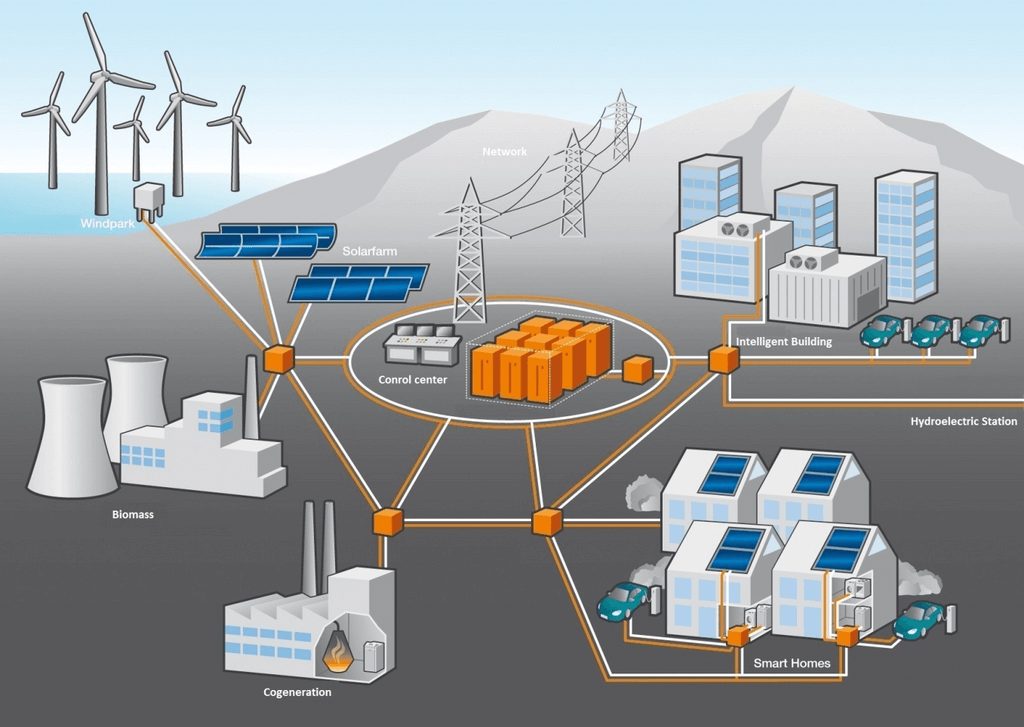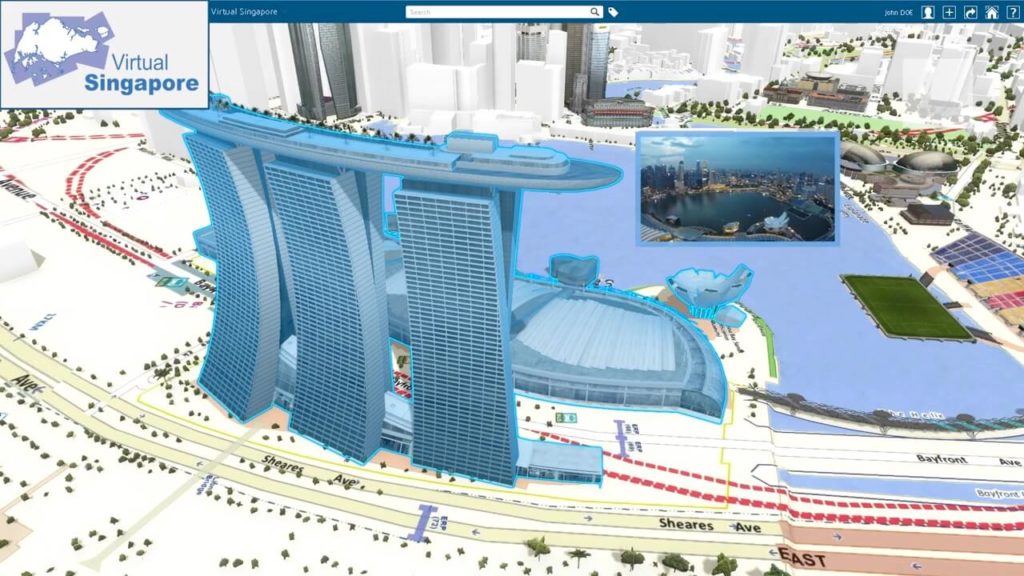The “Smart City 1.0” investment theme is dead. The era of top-down, vendor-led “megaprojects”—where tech giants promised to install millions of sensors to solve every urban problem—has largely failed.
That model collapsed because it was expensive, privacy-invasive, and resulted in “ghost towns” (like Songdo, South Korea) or public revolts (like Sidewalk Labs in Toronto).
However, the need to modernize cities hasn’t gone away. Municipalities are still sitting on a ticking time bomb: crumbling infrastructure, rapid urbanization, and shrinking budgets.
That means the glossy Jetsons-esque brochures from a decade ago have now been replaced by a far more grounded and ROI-minded endgame: squeeze every ounce of value out of existing assets.
Less about utopia; more about efficiency and resilience.
This is the “Smart City 2.0” thesis, and it has split into four pragmatic buckets: GovTech, Urban Resilience & Resources, Cognitive Infrastructure, and Cyber-Physical Security.

GovTech & City OS
These smart city stocks represent the “operating system” of the public sector. While the physical city is built from concrete and steel, the administrative city is built on code, payments, and records. This sector is currently undergoing a “forced upgrade” cycle: municipalities are compelled to digitize their backends to combat labor shortages and recover revenue faster. The thesis here is about owning the sticky, recession-resistant software monopolies that effectively run the government.
Tyler Technologies (NYSE: TYL)
Tyler functions as the outsourced IT backbone for over 13,000 local government offices. From property appraisals and court case management to utility billing, Tyler provides the proprietary ERP (Enterprise Resource Planning) systems that these entities rely on daily.
The bear case historically cited slow government sales cycles. The bull case focuses on retention: once installed, these systems have extremely low churn rates due to high switching costs. Tyler holds a dominant market share in several of its niches, providing significant pricing power.
The 2026 Catalyst: The SaaS Inflection. Tyler is currently migrating its massive client base from on-premise servers to the cloud (AWS). This transition temporarily pressures margins but builds a recurring revenue model long-term. The company projects that approximately 80% of its on-premise customer base will have migrated to the cloud by 2030. 2026 serves as a key execution year where the “bubble” of migration costs begins to stabilize and give way to SaaS revenue growth.
Axon Enterprise (NASDAQ: AXON)
Axon has executed a strategic pivot from a hardware manufacturer to a software-centric ecosystem. While they still sell the physical Taser and body cameras, the core current thesis rests on the cloud-based management of the evidence those devices generate.
They have built a comprehensive network effect. Police departments utilizing Axon hardware are incentivized to use Axon’s cloud platform (Evidence.com) to manage the resulting digital evidence. This lock-in has allowed them to expand into dispatch and records management.
The 2026 Catalyst: Draft One. While the Taser 10 upgrade cycle drives hardware revenue, the focus for 2026 is AI integration. Axon’s new product, Draft One, uses generative AI to draft police reports based on body camera audio. It has become the fastest-adopted product in the company’s history. As adoption scales through 2026, this shifts the revenue mix further toward high-margin software subscriptions. This creates a pathway for expanded profitability even if hardware sales cyclicality occurs.
ACI Worldwide (NASDAQ: ACIW)
If Tyler provides the administrative OS and Axon provides the security layer, ACI provides the payment infrastructure. Governments are massive billers—collecting taxes, utilities, and fines—yet their collection methods often lag the private sector.
ACI Worldwide facilitates backend payments for the IRS, thousands of municipalities, and major utility companies. They provide the processing engine behind the digital payment portals used by millions of citizens.
The 2026 Catalyst: Real-Time Payments (RTP). The catalyst here is the modernization of the U.S. payment rail. Governments and utilities are increasingly seeking liquidity and looking to move away from the processing delays of paper checks. With the rollout of FedNow, for which ACI is a pilot partner, the infrastructure for instant settlement is now live. As RTP volumes ramp up, ACI is positioned to capture transaction fees from the shift to digital, instant payments.
Urban Resilience & Resources
The thesis behind these smart city stocks lies in the “retrofit reality.” Cities cannot afford to rip and replace their century-old water pipes or electrical grids. Instead, the more pragmatic stopgap is to wrap digital intelligence around dumb, aging infrastructure to prevent catastrophic failure. These companies are not selling a better future; they are selling insurance against a breaking present. They provide the pumps, sensors, and grid-hardening tech required to keep the lights on and the water running.
Itron, Inc. (NASDAQ: ITRI)
Itron sits at the intersection of power and water. While they are known for smart meters, their real value proposition has shifted to “Grid Edge Intelligence.” As the demand for electricity explodes—driven by AI data centers and EV charging—utilities are terrified of blackouts. They cannot build new power plants fast enough, so they must optimize the grid they have.
Itron’s distributed intelligence platform allows meters to make decisions locally (at the “edge”) without waiting for the central control room. This means a meter can detect a dangerous voltage spike and shut off power to a specific house in milliseconds, preventing a wildfire.
The 2026 Catalyst: The AI-Driven Upgrade Cycle. The thesis here hinges the forced upgrade. Utilities are currently sitting on a massive backlog of aging infrastructure. Itron’s backlog recently hit $4.3 billion, but the 2026 story is the acceleration of their “Outcomes” segment—their recurring revenue, software-heavy business. As utilities deploy Itron’s AI-enabled endpoints, Itron moves from selling hardware (one-off) to selling grid management (recurring).
Badger Meter, Inc. (NYSE: BMI)
Water is the most mispriced asset on earth, and municipalities are losing ~30% of it to leaks before it even reaches the customer. Badger Meter has a stranglehold on the solution. They have effectively moved the water meter from a mechanical dial in the dirt to a high-tech ultrasonic sensor connected to the cloud.
Badger is famously boring and incredibly profitable. They carry virtually no debt and dominate the U.S. market. Their ultrasonic meters have no moving parts, meaning they don’t degrade over time, ensuring accurate billing for cash-strapped cities.
The 2026 Catalyst: The “Smart Water” Tipping Point. With water scarcity becoming an acute crisis in the American West, cities are now mandating “smart water” systems to track every drop. Badger’s “BEACON” SaaS platform is the beneficiary. The replacement cycle for legacy mechanical meters—which comprise the majority of the installed base—is expected to accelerate, driving a mix shift toward their higher-margin software and digital solutions.
Willdan Group (NASDAQ: WLDN)
Willdan is a consulting and engineering firm that functions as the implementation arm for government energy mandates. When a state passes a law requiring buildings to be “net zero” or a utility needs to reduce load, they hire Willdan to figure out how to actually do it.
They effectively audit entire cities, redesign their energy systems, and often guarantee the savings. They are the “boots on the ground” for the green energy transition.
The 2026 Catalyst: The Implementation Phase. Willdan is currently winning massive multi-year contracts, such as the recent $97 million project for Alameda County and expanded work with National Grid. The company is entering the peak execution phase of these contracts. As the complex web of IRA (Inflation Reduction Act) funding finally flows from federal coffers to municipal projects, Willdan’s revenue recognition accelerates.

Cognitive Infrastructure
For decades, urban data was trapped in silos—traffic lights didn’t talk to ambulances, and construction sites were black boxes to their owners. These smart city stocks are about bridging the physical and digital worlds through “Digital Twins” and connected sensors. It translates the chaotic reality of a city into a structured data stream, allowing operators to simulate disasters, automate logistics, and optimize traffic flow before a single shovel hits the ground.
Trimble Inc. (NASDAQ: TRMB)
Trimble is often misunderstood as a hardware company that sells GPS sticks to surveyors. In reality, it is the primary software layer for the construction industry. Their technology bridges the gap between the digital blueprint and the muddy reality of the job site.
Their “Connect & Scale” strategy has systematically integrated their fragmented software portfolio into a unified platform. This allows data to flow seamlessly from the architect’s desk to the excavator’s cab, eliminating the “rework” that costs the construction industry billions annually.
The 2026 Catalyst: Agentic AI in Construction. While the market focuses on their data center construction boom, the space to watch is the deployment of “Agentic AI.” Trimble’s 2026 industry outlook highlights a shift from passive software tools to active AI agents that can observe workflows and automate decisions. With a projected shortage of nearly half a million construction workers, the industry is being forced to adopt these autonomous tools not for “innovation,” but for survival.
Bentley Systems (NASDAQ: BSY)
Bentley is the pure-play engineering software stock. If you drive over a bridge or rely on a hydroelectric dam, there is a high probability it was designed and is maintained using Bentley’s software.
Their moat is the “Digital Twin”—a dynamic virtual replica of physical infrastructure. Unlike a static 3D model, a Digital Twin evolves in real-time. If a bridge develops a stress fracture, the Digital Twin shows it, allowing engineers to fix it before catastrophe strikes.
The 2026 Catalyst: The “Digital Thread” & Blyncsy. Bentley is moving beyond simple design into full lifecycle management. The catalyst is the integration of their recent acquisition, Blyncsy, which uses AI to automatically detect road maintenance issues (like faded lane lines or potholes) using standard dashcam footage. This technology is expected to scale across their “iTwin” platform, allowing governments to automate infrastructure inspection without sending human crews into the field. This shifts Bentley’s value proposition from “design software” (one-time) to “maintenance intelligence” (recurring).
Samsara Inc. (NYSE: IOT)
Samsara solved a simple yet expensive problem: industrial data was dark. Trucking fleets, heavy machinery, and remote assets were effectively invisible to their owners.
Samsara’s “Connected Operations Cloud” ingests data from sensors, cameras, and vehicles to create a single view of operations. They have amassed a data moat of over 20 trillion data points annually, which they are now leveraging to train AI models for safety and efficiency.
The 2026 Catalyst: The Profitability Inflection. Samsara has historically burned cash to grow, but the 2026 fiscal year marks a projected pivot toward sustained profitability. The growth engine is shifting from simple GPS tracking (“Where is my truck?”) to complex AI workflows (“Is my driver fatigued?” or “Is this forklift being operated unsafely?”). As they overlay these AI insights onto their massive existing customer base (including major logistics and field service operators), they aim to monetize their data advantage.
Verra Mobility (NASDAQ: VRRM)
Verra Mobility operates in a near-monopoly niche: processing tolling and violation transactions for rental car fleets and municipalities. If you rent a car and drive through a toll, Verra processes that payment. If you run a red light, Verra processes the ticket.
They are the ultimate “boring” toll-taker business, embedded deeply into the administrative backend of major cities and rental agencies. Additionally, the expansion of their urban mobility business (bus lane and red-light enforcement) in major U.S. metros provides a sticky, legislative-backed revenue stream.
The 2026 Catalyst: European Expansion. While their U.S. business is a cash cow, the growth story is Europe. The EU is aggressively moving toward “barrier-free” (cashless) tolling systems to reduce congestion. Verra is positioning itself to be the interoperable layer for this fragmented market. With upcoming mandates in nations like the Netherlands (commercial freight mandates) and Italy, Verra’s ability to handle complex cross-border payments makes them a critical partner.

Cyber-Physical Security
As we connect dams, power plants, and transit systems to the internet, we expose them to a new class of risk. These smart city stocks are the guardians of the “Cyber-Physical” frontier. The “air gap” that once separated the internet from industrial machinery is gone, meaning a digital breach can now result in physical damage. This sector represents the defensive layer of the thesis: it is no longer just about data privacy; it is about national security and protecting the critical assets that sustain urban life.
Parsons Corporation (NYSE: PSN)
Parsons is not your typical defense contractor. While they build missiles and airports, their secret weapon is their high-end cyber-physical expertise. They are the company the government hires when they need to secure a physical asset (like a nuclear site or a water treatment plant) from a digital attack.
They operate at the “tactical edge”—meaning their software sits on the device itself, not just in a data center. Their strategy of acquiring boutique cyber firms (like Xator and IPKeys) has built a unique “Edge-to-Edge” protection stack that blends physical surveillance with offensive cyber capabilities.
The 2026 Catalyst: The Pacific Deterrence & NEOM. Parsons is currently riding a tailwind of federal infrastructure spending, but the 2026 catalyst is geopolitical. The Pacific Deterrence Initiative (a multi-billion dollar defense effort to counter China) is entering a heavy execution phase in 2026, with Parsons winning key contracts to harden infrastructure in the region. Simultaneously, their role in Saudi Arabia’s NEOM project (specifically the industrial city Oxagon) moves from “planning” to “building.” These are multi-year, sticky engagements.
Tenable (NASDAQ: TENB)
Tenable is famous for “Nessus,” the software that scans IT networks for holes. But their future isn’t in scanning laptops; it’s in scanning turbines, robotic arms, and HVAC systems.
This is OT Security (Operational Technology). Most industrial machines run on decades-old software that cannot be patched. Tenable’s “OT Security” platform listens passively to the industrial network, identifying vulnerabilities without knocking the delicate machinery offline. It is the only way to see the “ghosts” in the machine.
The 2026 Catalyst: Tenable One. Historically, Tenable was a point-solution vendor. The major unlock will be the mass migration to Tenable One, their unified exposure management platform. Instead of buying separate tools for cloud, identity, and OT, customers are consolidating onto Tenable One to get a single risk score for the entire organization. This consolidation trend should drive a significant margin expansion (S&P recently upgraded them based on this trajectory).
The Retrofit Reality
The “Smart City” is no longer a construction megaproject; it is a rescue mission. The days of brochures filled with futuristic, new metropolises are over. Today, the reality is about battling entropy—using technology to save aging cities from their own decaying infrastructure and shrinking budgets.
This watchlist provides a tiered approach to this rescue mission. GovTech (Tyler, Axon, ACI) builds the administrative operating system that keeps the government functional. Urban Resilience (Itron, Badger, Willdan) provides the hardware retrofit—the pumps, meters, and grids. Cognitive Infrastructure (Trimble, Bentley, Samsara, Verra) translates physical chaos into digital intelligence. Finally, Cyber-Physical Security (Parsons, Tenable) protects this newly connected reality from attack.